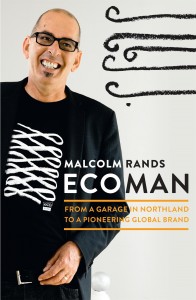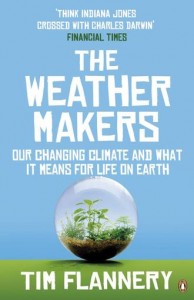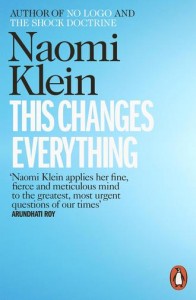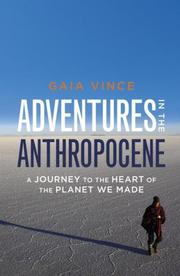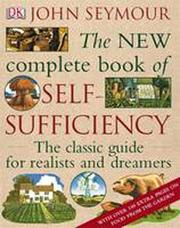We’re heading for a world population of 10 billion people but what will we all eat? Lisa Dyson has rediscovered an idea developed by NASA in the 1960s for deep-space travel, and it could be a key to reinventing how we grow food.
Tag Archives: #sustainability
Earth Day: a catalyst for change
April 22 is Earth Day, the event when we tackle the challenges that face us as carers of our planet. However while raising awareness and promoting participation in community and environmental actions, Earth Day is also a catalyst for change.
Many people — from children to the elderly — are inspired by Earth Day and become lifelong fighters for our planet, said Kathleen Rogers, president of Earth Day Network.
“Millions of people in dozens of different countries will become lifelong environmentalists this and every Earth Day. Hundreds of thousands will be children – our planet’s future,” she said.
More than one billion people throughout 192 countries celebrate Earth Day. These people aren’t special, they’re the same as you and me, yet they are environmental heroes and their stories are well suited to Earth Day. Here are three examples.
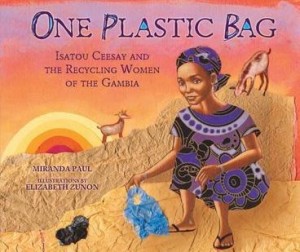 One Plastic Bag — Miranda Paul
One Plastic Bag — Miranda Paul
One Plastic Bag is the true story of Isatou Ceesay, the “Queen of Recycling” in the western African country of The Gambia. As a young girl, Isatou noticed how quickly plastic bags had multiplied in her local environment, choking gardens, roads and waterways. The plastic collected water, becoming a haven for deadly mosquitoes that carried disease. Isatou and her friends solved the problem by crafting the plastic into wallets, purses and other items for sale, transforming their local communities in the process.
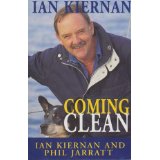 Coming clean — Ian Kiernan
Coming clean — Ian Kiernan
Famous yachtsman, builder and author, Ian became aware of the amount of rubbish dumped in the world’s oceans while competing in yacht races. Beginning in his hometown of Sydney, Ian started organising teams of people to clean up the mess. His determination and leadership has now seen the Clean Up campaign go international.
 Chapter One — Thankyou
Chapter One — Thankyou
Daniel Flynn and his colleagues in the Thankyou. team have set up a remarkable charity, the story of which is documented in the book Chapter One. The book tells the story of the Thankyou social enterprise which has achieved enormous success by providing an alternative in such products as snack bars, bottled water, cereals, soaps and sanitisers. Funds raised from sales go towards charitable causes and consumers can track the impact of their purchases through a unique code on each product.
These are just three examples of ordinary folk who have become true leaders, true activists for our planet. Through their books, we can see how they continue to change the society in which we live. Why not use these people as examples of how you can make a difference this Earth Day and beyond?
How sustainable living taps into ancient wisdom
Sustainable living is defined as a lifestyle that reduces the impact on the Earth’s resources. However look a little closer and you’ll see the term, along with others such as self sufficiency, homesteading and organic food, are just new tags for traditional, common sense methods of living – the way our grandparents lived and largely fed themselves.
One increasingly popular part of sustainable living — growing organic food — is well documented by the following authors using this wisdom. They show how growing pesticide-free fruit and vegetables is not only possible but easy in small homes and apartments using the knowledge handed down by previous generations.
Indira Naidoo
Author, food activist and television personality Indira Naidoo has demonstrated this in her book The Edible Balcony and the recently released follow up The Edible City.
Both books examine how urban spaces can be transformed into productive, sustainable areas for the growing of organic vegetables. The author takes us into her world, first on her Sydney unit balcony, then to the city itself, to show how real sustainability and organic living can be achieved on a small scale and change lives for the better.
Linda Woodrow
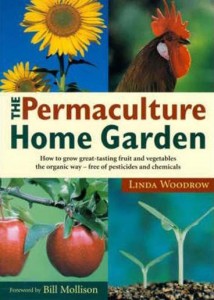 Small-scale organic living is very much the focus of Linda Woodrow’s The Permaculture Home Garden. The author combines traditional common sense with the science of permaculture to show how people can transform their gardens into sustainable food gardens.
Small-scale organic living is very much the focus of Linda Woodrow’s The Permaculture Home Garden. The author combines traditional common sense with the science of permaculture to show how people can transform their gardens into sustainable food gardens.
Packed with advice, encouragement, diagrams and inspiration, The Permaculture Home Garden shows how easy it is to reduce your carbon footprint while producing stunning organic fruit and vegetables for the kitchen table.
Individual know how, organic living and sustainability are the key themes running through these books. Though they vary in style and scope, all three show the importance of collective knowledge and wisdom in sustainable living.
The power of environmentally conscious people thinking of the future of the planet by taking inspiration from the past.
The best reads on sustainable living
Taking meaningful steps to reduce our environmental footprint has been top of mind for me over the last few years. As for how that translates into action, it tends to get overridden by the rush of our lives. I’ll never be the Felicity Kendall character from ‘The Good Life‘ and raise chickens and goats but I can focus on buying better-produced products and minimise product packaging.
The World Wildlife Foundation have provided an ecological footprint calculator which measures your carbon footprint and also includes steps you can take to reduce your impact on the environment.
Here are our picks for inspiring books about sustainable living (including an E-Book).
Ecoman by Malcolm Rands
The story of how Malcolm Rands, an organic gardener and hippy from Northland, built the pioneering global brand ecostore. Malcolm Rands started ecostore from New Zealand’s first permaculture eco-village with his wife Melanie in 1993. They sourced local manufacturers to make a range of organic gardening; home cleaning and body care products for the then mail-order business in the dug-out basement of their home. Twenty years on and Malcolm has developed ecostore into a multi-million dollar business.
The Weather Makers by Tim Flannery
Tim Flannery takes the reader on a journey through history and around the globe as he describes the diversity of the world’s ecosystems and reveals how the earth’s climate has changed, causing devastating changes in the weather, from hurricanes to heatwaves.
This Changes Everything: Capitalism vs the Climate by Naomi Klein
In this groundbreaking book, Klein debunks the myths we have been fed about climate change such as that it’s impossible to get off fossil fuels. Klein challenges these assumptions and clearly articulates the relationship between free-market capitalism, the fossil fuel industry and global warming. Winner of the Hilary Weston Writers’ Trust Prize for Nonfiction, Observer Book of the Year and New York Times Book Review 100 Notable Books of the Year.
Adventures in the Anthropocene: A Journey to the Heart of the Planet We Made by Gaia Vince
Gaia Vince writes of us entering a new Geological epoch: The Age of Man or Anthropocene. The changes made by humans over the past few decades have changed the world beyond anything it has seen in its 4.5 billion years. The impacts of this are that people are finding ingenious ways to solve ongoing crises, such as the retired railway worker who’s building artificial glaciers in the Himalayas. Winner of the Royal Society Winton Prize for Science Books 2015.
Six Degrees: Our Future on a Hotter Planet by Mark Lynas
The title of Lynas’s book, ‘Six Degrees’, refers to the terrifying possibility that average temperatures will rise by up to six degrees within the next hundred years. This is the first time we have had a reliable picture of how the collapse of our civilisation will unfold unless urgent action is taken. Most vitally, Lynas’s book serves to highlight the fact that the world of 2100 doesn’t have to be one of horror and chaos. With a little foresight, some intelligent strategic planning, and a reasonable dose of good luck, we can at least halt the catastrophic trend into which we have fallen – but the time to act is now.
Homesteading: how a self-reliant outlook is shaping the future of small-scale agriculture
In the early 70s, President Richard Nixon’s Agriculture Secretary Earl Butz called for American farmers to “get big or get out”. This signified the end of New Deal-style rural assistance programs and ushered in the start of big agriculture in the United States.
However while agribusiness has since become dominant, the love of independent, small-scale farming has never died. The trend in recent decades towards homesteading, or self sufficiency on a small acreage, has borne this out.
Homesteading can mean a number of things to different people, though independence is always the key.
- Organic food. Producing food the old-fashioned way: organic and unprocessed. Traditional food preservation practices may also be incorporated.
- Sustainability. Economically viable and environmentally sound, a sustainable small farm is the aim of most homesteaders.
- Renewable energy. Many homesteaders look to produce much of their energy through clean, renewable energy to reduce their reliance on electricity grids.
- Philosophy/lifestyle. Like Walt Whitman, many homesteaders return to the land for health, philosophical and environmental benefits.
Homesteading in the US has grown from a fringe movement to one where self sufficiency and growing foods the traditional way has become a viable, even profitable, concern for many people.
The movement can be traced to pioneers such as UK author John Seymour whose work “The Complete Book of Self Sufficiency” has inspired many to return to the land.
Many homesteaders follow the design principles of permaculture as outlined in David Holmgren’s Permaculture Principles and Pathways Beyond Sustainability.
Other publications such as Ron Macher’s “Making your small farm profitable” have concentrated on the profitability and availability of credit for small farms and homesteads.
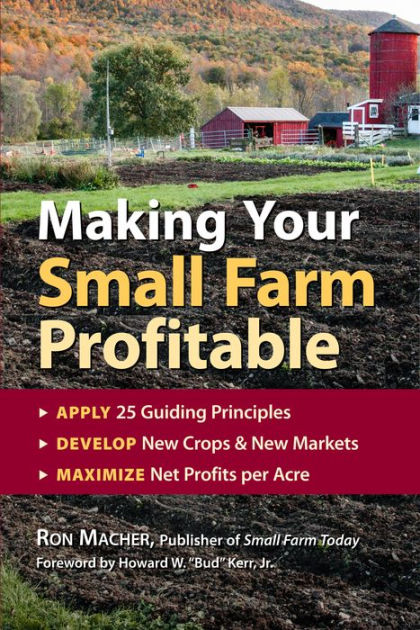 Whether the aim is to grow organic food, disconnect from the grid or a retreat from city life, homesteading has proved a viable alternative to reliance on supermarkets, big power companies and big city living.
Whether the aim is to grow organic food, disconnect from the grid or a retreat from city life, homesteading has proved a viable alternative to reliance on supermarkets, big power companies and big city living.


